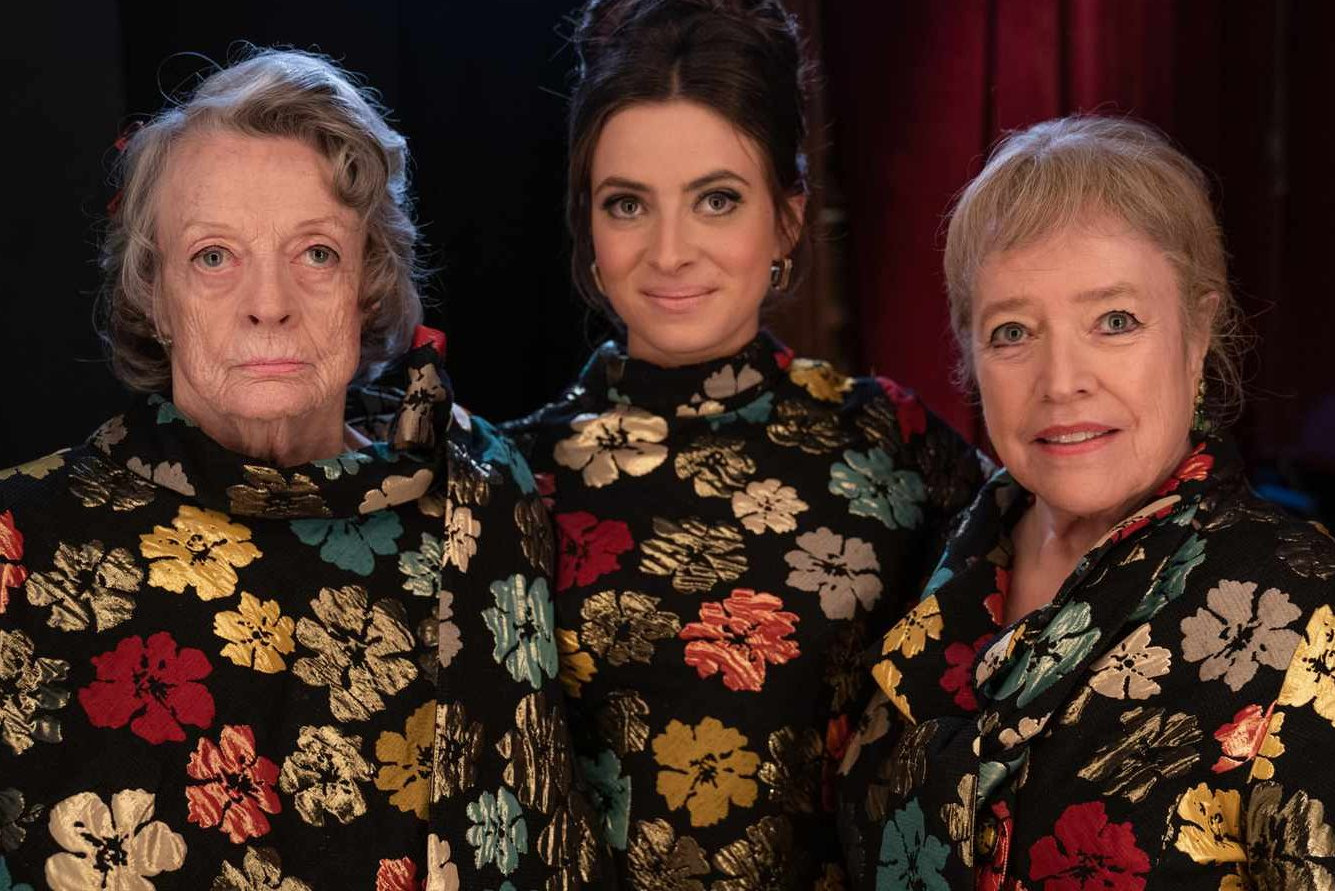
‘THE MIRACLE CLUB’ REVIEW: DREAM CAST OF LAURA LINNEY, MAGGIE SMITH AND KATHY BATES ELEVATES IRISH DRAMA
16th Jul, 2023
‘THE MIRACLE CLUB’ REVIEW: DREAM CAST OF LAURA LINNEY, MAGGIE SMITH AND KATHY BATES ELEVATES IRISH DRAMA
16th Jul, 2023
Variety by Peter Debruge
“The Miracle Club” may not be a faith-based movie in the traditional sense (that is, a film made with an explicitly evangelical Christian agenda), but this Ireland-set art-house offering is a movie about faith all the same — specifically, about the conviction that drives four women to make the pilgrimage from Ireland all the way to Lourdes, France, where the waters are believed to have holy healing powers. If “The Miracle Club” were an overtly religious film, audiences would know from the outset what to expect from the trip (namely, a miracle), whereas director Thaddeus O’Sullivan doesn’t presume to play God, focusing more on mending the relationship between his main characters.
And what a cast he’s assembled to explore these women’s spiritual growth. The movie’s nothing special, but it’s worth checking out for the ensemble alone. Maggie Smith plays Lily, who lost her son to the sea decades earlier. Adopting an Irish accent and a frosty overall demeanor, Kathy Bates plays Eileen, who’s been nursing a grudge for nearly three decades, ever since ex-bestie Chrissie (American actor Laura Linney) left town. In the interim, Eileen (who’s married to a plumber played by Stephen Rea) has embraced a younger woman, Dolly (Agnes O’Casey), as sort of a replacement friend. The particulars of the characters’ falling out slowly emerges over the film’s running time and probably won’t surprise many, though there is one big secret at the center of their discord that might perturb the Catholic crowd.
The movie confuses at first, introducing three of these women on the eve of a church-sponsored talent show. The winners get a trip to Lourdes. Second place: a bacon joint. (Everyone wants first prize.) O’Sullivan shows Smith’s, Bates’ and O’Casey’s characters each trying to squeeze into what looks like the same dress, and though the actors look nothing alike, it’s easy to assume that they’re playing the same person at three separate time periods. The real explanation: It’s 1967, and three different people are slipping into matching outfits to perform at the concert, which was organized by Chrissie’s mother, who died before getting to make the religious pilgrimage herself.
Meanwhile, Linney makes her entrance sporting a bright yellow coat that looks entirely too posh — and more than a little out of place — in the blue-collar town of Ballygar, though she also wears the sort of expression we love Linney for: She radiates empathy and a sort of soft-spoken sincerity, as if her characters are holding back the full intensity of their emotions out of consideration for others … which is precisely the case here.
Chrissie misses her mom’s funeral but arrives in time for the Holy Cross Talent Show, which doubles as a kind of wake where she knows she’ll have to face her mom’s friends … along with painful elements from her own past. The ladies are frosty with Chrissie, blaming her for her mother’s unhappiness all these years, but one thing leads to another, and the four women find themselves crammed together on a bus to big-city Dublin (glimpsed in a split-second aerial shot), a ferry to France and onward to Lourdes, the dark cloud of old grudges following them the entire way.
The segment in Lourdes has a certain low-budget quality, as there’s only one angle from which the exterior of the shrine can be seen. Views of the interior feel choppy and incomplete, giving a limited sense of the famous site (the gift shop figures as prominently as the grotto where Mary reportedly appeared in 1858), though we get the picture. The women have come in search of miracles: Lily experiences pain in her uneven legs, Eileen is concerned about a lump in her breast and Dolly brings her son, who refuses to speak, hoping that he may be cured. “You don’t come to Lourdes for a miracle,” explains their kindly chaperone, Father Dermot (Mark O’Halloran). “You come for the strength to go on when there is no miracle.”
Co-written by Jimmy Smallhorne, Timothy Prager and Joshua D. Maurer, “The Miracle Club” doesn’t insist on forcing supernatural events down anyone’s throat, but honors the women’s religious devotion — and their doubts — by acknowledging the role faith plays in their daily lives. It’s not that the film is especially realistic (we’ve all seen our share of hardscrabble Irish stories, few of which feel as neatly manicured as this one), but it respects the struggle of working-class families crammed into row houses, so tight for pennies they have to steal from the electric meter in their homes. For them, getting to make a trip to Lourdes is a life-changing event, whatever powers the waters may possess.
